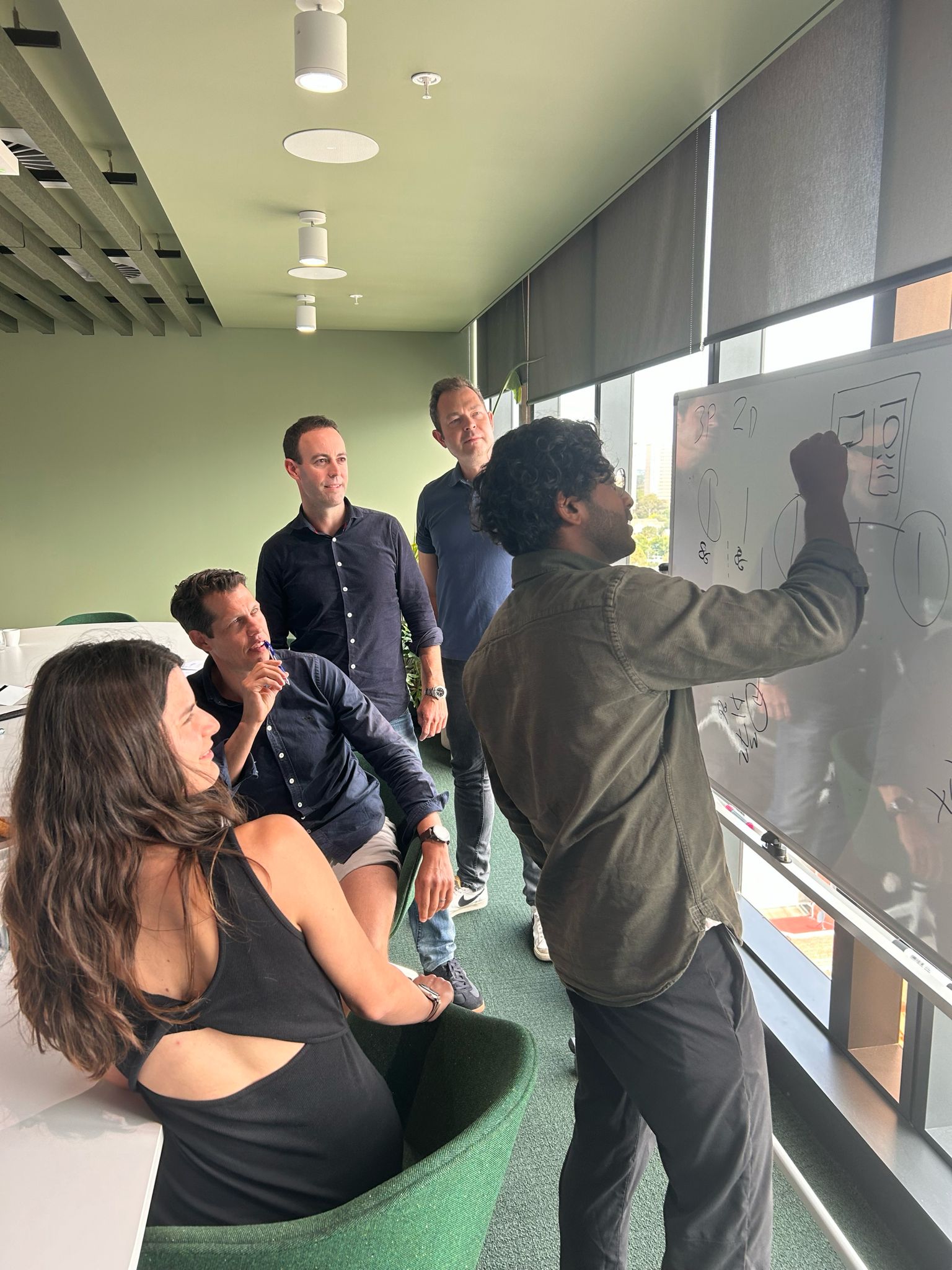Thank you! Your submission has been received!
Oops! Something went wrong while submitting the form.

Mayfly collaborated with the MUCUDU team to build a low-code MVP for their hospitality tech platform, which includes loyalty management, peer-to-peer monetary gifting, and Tab functionality.
Beyond the standard integrations with Stripe, Apple, and Google for login and payments, we incorporated advanced integrations with Point of Sale systems like Doshii and AI-driven recommendations that personalize the dining experience.
AI agents are quickly becoming the backbone of the next wave of digital transformation, promising to automate tasks, solve inefficiencies, and redefine how businesses operate. But how exactly do these intelligent systems work? What makes them capable of executing complex tasks autonomously?
In this article, we’ll break down the core components and technologies that power AI agents, giving you a clear understanding of how they function and why they’re such a game-changer for industries worldwide.
AI agents are software programs designed to work autonomously, learn from interactions, and improve over time. They don’t just answer questions (like ChatGPT); they execute tasks, interact with tools, and make decisions with minimal human intervention.
For example, a customer service AI agent doesn’t just provide answers—it can access a CRM system, resolve customer issues, and even schedule follow-ups automatically.

At the heart of most AI agents lies a Language Model (LLM), which serves as the brain for processing and generating human-like text. These models are trained on vast datasets and are capable of understanding context, recognizing patterns, and providing meaningful outputs.
Popular LLMs include:
How It Works:
When a user inputs a query or task, the LLM interprets the request, predicts the best response, and generates an output. For AI agents, the LLM acts as the decision-making engine, guiding the agent’s actions.
Unlike traditional software, AI agents are designed to take action. They don’t just provide information—they execute tasks based on their goals.
Key Features:
For instance, an AI sales agent might:
All of this is done autonomously without human oversight.
One of the defining features of AI agents is their ability to integrate with external software tools. This allows them to operate across systems seamlessly and carry out tasks.
Examples of Integrations:
Integration is usually achieved through APIs (Application Programming Interfaces), which enable the agent to send and receive data between systems.
AI agents rely on training data to specialize in specific tasks or industries. While general-purpose agents like ChatGPT can handle a wide range of queries, vertical AI agents are trained with domain-specific data for greater precision and relevance.
How It Works:
For example, Fairgo’s HR AI agent is fine-tuned to understand the nuances of job screening and recruitment, making it far more effective than a general-purpose tool.
Reinforcement Learning (RL) is a technique that allows AI agents to improve their performance over time through feedback and trial-and-error.
How It Works:
This iterative process ensures that AI agents become smarter and more efficient the more they’re used.
While much of an AI agent’s work happens in the background, user interaction is a critical component. A well-designed UI ensures the agent is accessible and easy to use.
Common interaction methods include:
A great UI not only enhances user experience but also builds trust by providing transparency into the agent’s actions.

NLP enables AI agents to understand and process human language, making it possible for them to interpret queries, analyze context, and generate responses.
ML algorithms allow agents to learn patterns and improve performance over time without explicit programming.
APIs are the glue that connects AI agents with external tools, enabling them to execute tasks across platforms seamlessly.
Platforms like Bubble.io and Flutterflow have democratized AI agent development, making it accessible to non-technical founders.
AI agents are still in their early stages, but their potential is undeniable. As technologies like LLMs, reinforcement learning, and integrations become more sophisticated, AI agents will evolve from supporting roles to indispensable business tools.
From healthcare to hospitality, the industries that embrace AI agents today will lead the charge in efficiency, innovation, and growth tomorrow.
If you’re ready to build your own AI agent, Mayfly Ventures can help you turn your idea into reality with cost-effective, scalable solutions. Let’s chat.
.webp)

We’re a team of engineers, designers and venture builders. We partner with industry experts to build and launch AI and software ventures.
We combine your insight and network with our proven playbook and venture building expertise to turn bold ideas into globally scalable products.
We back ventures with capital. With skin in the game our support goes far beyond deliverables, we’re an invested partner in your success.
Here to support from idea conception, to commercialisation and well beyond launch.
You're an industry insider with a deep understanding of the pain points and inefficiencies in your sector which are prime for AI disruption.
You have the network to access early adopters locally with the conviction to scale globally.
You are looking for a partner experienced in launching tech ventures to guide you the process of building, launching and scaling an Al platform to transform your industry.

